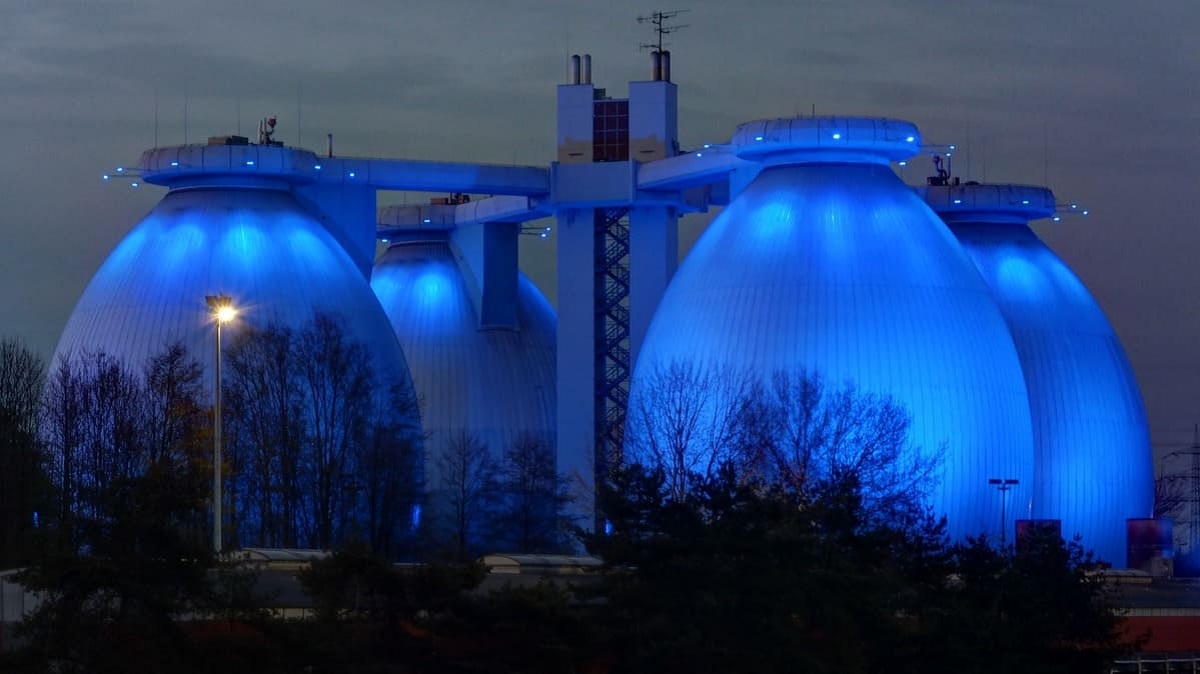Methanization is often presented as an energy panacea, a response to climate change. Yet claims that it is carbon-neutral and environmentally friendly conceal a number of realities. Methanization is not an ecological process, and the idea that it contributes to carbon neutrality is erroneous, according to Daniel Chateigner, Professor at the University of Caen Normandie and crystallographic physicist. He questions the capacity of methanization to be a real miracle solution for the environment.
Methanization mainly produces digestate, 90 % of which is waste, only 10 % of which is gas, mainly methane (CH4) used as an energy source, and 4 % of which is CO2. This process is not environmentally friendly, contrary to what is commonly promoted, and the idea that methanization contributes to carbon neutrality is erroneous. What's more, methane leakage has been found to average 4.8% across all studies, whereas a leakage of just 1 % is enough to cancel out the benefits of the carbon balance, since methane has a global warming potential 86 times higher than that of CO2 over 20 years (the typical lifespan of a methanizer).
There is confusion between carbon neutrality and climate neutrality: methanization, by continuously generating methane and CO2, cannot be considered climate neutral. What's more, the rate of photosynthesis cannot effectively compensate for gas production, further widening the gap. This misnomer weighs heavily on future generations, misleading them as to the true environmental footprint of this practice.
Methanization therefore seems far from "carbon neutral". It is more akin to the creation of neo-methane from dedicated crops, transforming potentially useful soil resources into gases that contribute to the greenhouse effect. In fact, using biomethane emits two to six times more CO2 than using natural gas.
As for the energy that anaerobic digestion can deliver, this is extremely low compared with other known energy supplies, with an Energy Rate of Return probably less than 1, i.e. less energy is recovered than was spent to recover it! Solar energy, for example, offers a far more significant capacity, suggesting other ways of meeting energy needs. The energy delivered by a hectare of solar panels is at least 100 times greater than that delivered by a hectare of crops.
The notion of soil fertilization by digestate is also called into question. Methanization, by using the carbon in biomass to produce methane, deprives soils of this essential input. Digestate, far from restoring a natural balance, contributes to soil carbon starvation, thus weakening soil fertility. Methanization impoverishes soils.
Although methanization offers soil cover with intermediate crops, this practice deviates from the principles of nitrate trap intermediate crops. Crops grown for methanization do not contribute to soil enrichment and affect biodiversity, thus impacting soil fertility.
The idea that digestate can be a good substitute for chemical fertilizers is also called into question. Liquid digestate, composed largely of ammonium ions, does not represent a more plant-assimilable alternative, contrary to what is sometimes claimed.
At the heart of these debates is the question of subsidies for methanization. Although farmers can benefit from these subsidies, they seem to favor intensive agricultural systems and major energy players, far from virtuous agricultural practitioners.
Methanization must be part of the energy mix, and play its part, and only its part. There is already a great deal of competition on agricultural land due to its development without safeguards. It must remain local and modest in scale. If we have real waste (real waste is that which would have no better use elsewhere), we can use it locally to produce energy, and not distribute it via networks that are also leaking. But if the objective is purely energy, as in the current frantic race to achieve it, we'll be jeopardizing our land, our water resources and the environmental health on which we all depend.
Despite aspirations to reduce the use of fossil fuels, in reality, methanization does not appear to offer a convincing ecological alternative. Its limited energy capacity, coupled with its harmful impacts on soils and the environment, raises concerns about its role in a truly sustainable energy transition for France.
Daniel CHATEIGNERProfessor at the University of Caen Normandie, crystallographic physicist and researcher at the Laboratoire de Cristallographie et Sciences des Matériaux (CRISMAT) of the CNRS and coordinator of the Collectif Scientifique National pour une Méthanisation raisonnable (CSNM).













Again and again, a lot of untruths about leaks, the GWP of methane, the return of carbonaceous matter to the soil, the quality of soils receiving digestate, etc. Nothing very scientific coming from a scientist. Nothing very scientific coming from a scientist... It's close to belief. To say that " the use of biomethane emits two to six times more CO2 than the use of natural gas." this is serious.
But let's carry on with fossil fuels, everything's fine!
Thank you for your comment Mr. ? It's amazing to criticize a scientist when you're hiding behind a pseudonym! Read and open your eyes
I came across your article by chance. I prefer those who cite their sources, like any self-respecting scientist. My name will add nothing to the subject.
Merci Daniel Chateigner pour cet éclairage systémique (à la fois agronomique, énergétique et sociétale). Il est important d’avoir des acteurs qui, hors des lobbyes, se penchent sur les avantages ET inconvénients de cette technique. Je découvre votre site internet, bien documenté, avec intérêt. Bravo.
NB : agronome de formation, je vis à la campagne, entouré d’agriculture